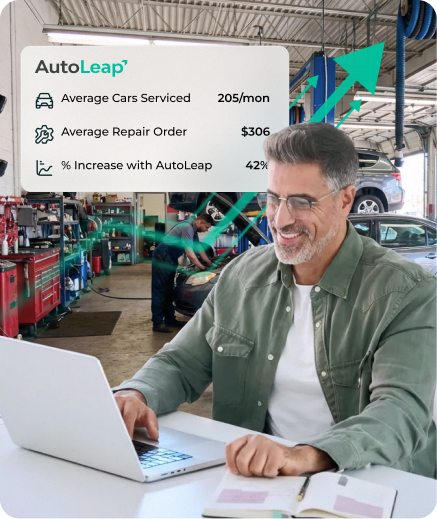Becoming an auto repair mechanic requires a passion for cars and technical skills. You need to develop problem-solving and communication skills. More than that, you need to be able to understand and work with diverse vehicles. So are you a recent graduate, contemplating a career switch, or a die-hard auto enthusiast? We have this step-by-step guide for you. It will help you navigate your career in auto repair. So you can become a skilled and sought-after mechanic.
How to Become a Mechanic
The automotive industry demands skilled mechanics. There are many ways of entering the industry. Some can start right in high school, whereas others might want to get into it later. For them, there are many routes as well.
So let’s see how you can start a career in auto repair.
Step 1: Lay the educational foundation
High school education or GED
You need a high school diploma to become an automotive service technician. A strong educational foundation is crucial for success in the automotive industry. You need to:
- Develop a solid understanding of mathematics, science, and English. These skills help interpret technical manuals, make accurate calculations, and communicate.
- Explore technical education courses in high school. Get a hands-on introduction to automotive systems. This early exposure can help you decide if a career as a mechanic aligns with your interests.
You can also consider the General Education Development (GED) Test. This requires you to take four subject exams. This is an alternative to the high school diploma. A mechanic’s role requires a mix of technical knowledge and hands-on expertise, as they are responsible for inspecting, repairing, and maintaining vehicles of all types.
Post-Secondary Education and Training
But if you’re serious about becoming an auto mechanic, there is more to it than a high school diploma. That is the first step. There are various certifications, degrees, and training programs you can consider. Let’s talk about that now.
Certificate Programs
Consider enrolling in certificate programs in automotive technology. These programs cover essential skills. They can finish in a short period, getting you into the workforce faster. Here are a few institutes offering great Automotive Technology Programs:
1. Universal Technical Institute (UTI)
This offers comprehensive programs that cover various aspects of auto mechanics. From diagnostics and repair to maintenance. This takes 51 weeks from start to finish.
2. Lincoln Tech
It covers topics such as engine repair, transmission systems, and electronic systems.
3. WyoTech
This offers programs with a hands-on approach. It covers areas like engine performance, drivability, and chassis systems. You can finish this in 6 months.
Associate Degree Programs in Automotive Technology
For a more comprehensive education, opt for associate degree programs. These two-year programs provide a deeper understanding of automotive systems. You get classroom instruction and hands-on experience. You can join a technical school or community college. These offer two to four-year degree programs in automotive technology.
Rolla Technical Institute offers a two-year auto technology program. The first year covers the theory in depth. The second year gives you more practical experience.
Bachelor’s Degree in Auto Service Management
A bachelor’s degree in auto service management can take you toward managerial positions. These can offer insights into the business side of the automotive industry. For this, you can also go to an automotive mechanic school.
Pittsburg State University offers a four-year bachelor’s program. You will get relevant and specialized knowledge. You will also get hands-on experience working on various complex vehicles. This will help you develop those strong problem-solving skills. You can choose from the following areas:
- Advanced vehicle systems
- Collision repair and insurance management
- Diesel and heavy equipment
- Dealership and corporate transportation management
- Automotive mechanical design
- Automotive technical
Specialized Training Programs
You can also opt for specialized training. The evolving automotive landscape allows for specialization in
- Electric vehicles
- Hybrid technology
- Advanced diagnostics
Universal Technical Institute (UTI) offers electrical vehicle training. Students learn how to maintain, diagnose, repair, and test high-voltage vehicles.
In specialized training programs, students work with seasoned industry professionals. This opens up new career paths. Niche expertise makes you invaluable in a fast-changing industry.
Step 2: Gain Practical Experience
Now comes the fun part. Getting hired as a mechanic. Theory alone can’t help you. Real-world experience will make you better at the job. There are a few roles you can take.

Internships and Apprenticeships
Seek internships and apprenticeships to gain practical, hands-on experience. This helps you explore new career opportunities. This is a crucial step in applying theoretical knowledge in a real-world setting. You can look for relevant opportunities on job-hunting platforms such as Indeed. Type in the keyword, such as ‘auto mechanic internship,’ and start reaching out to those job posters. There are also summer internship programs you can apply for. Tesla, and Toyota all offer automotive internship programs that you can apply for.
Apart from education and training, a career in auto repair is demanding. It requires long hours, lifting heavy equipment, and working in various weather conditions. You also need to be fit. to withstand the working conditions. So before you apply for any internships, make sure you will be able to take on the physical challenges of the job.
Entry-level Positions in Dealerships or Repair Shops
After internships, you can start entry-level positions in dealerships or repair shops. This initial experience is invaluable for honing your skills. Plus you understand the day-to-day operations of an auto repair facility. For example, you will start with changing car oil or assisting certified professionals. After one to two years, you can take the ASE certification.
Specialization Opportunities
You can also consider specializing in specific areas. For instance, you can go for motorcycle mechanics or diesel engine repair. This will broaden your skill set.
Step 3: Certification and licensing
This is an important step in your career as an auto mechanic.
ASE (Automotive Service Excellence) Certification
The National Institute for Automotive Service Excellence is an industry-standard. You can start with entry-level and progress to Master Automotive Technician certifications. These auto mechanic certifications show your commitment. They also set you apart in the industry. This covers nine areas:
A1: Engine Repairs
A2: Automatic Transmission/ Transaxle
A3: Manual Drivetrain & Axles
A4: Suspension & Steering
A5: Brakes
A6: Electrical Systems
A7: Heating and Air Conditioning
A8: Engine Performance
A9: Light Vehicle Diesel Engines
Specialty Certifications
Vehicles are becoming more specialized. Mechanics may need to invest time and resources to improve their skills in one area. Some examples of specialty certifications are:
- Collision repair and refinish
- Damage analysis and estimating
- Alternate fuels
- Auto maintenance and light repair
- Advanced engine performance specialist
- Light duty hybrid/electric vehicle specialist
- Parts Specialist
- Under-car specialist exhaust systems
- Automobile service consultant
EPA Certification
Auto mechanics can further improve their skill set and service offerings. They can get certified by the Environmental Protection Agency (EPA). For those specializing in air conditioning repairs, EPA certification is particularly valuable. The EPA certification demonstrates a commitment to environmental standards. It is also a legal requirement for handling refrigerants.
This accreditation allows mechanics to legally service and repair automotive air conditioning units. It ensures compliance with environmental regulations.
By staying updated on certifications and regulations mechanics expand their service. They also establish trust with customers who seek professionals. This contributes to the long-term success and reputation of their repair shop.
Manufacturer-Specific Certifications
You can get certifications from specific automotive manufacturers.
- This will showcase your skill in their products.
- You can learn more about their vehicles, parts, and engines.
- You can also learn about the latest developments when the manufacturer launches it.
Some shops do look for mechanics who can work on a specific brand. For instance, Toyota offers the Toyota Professional Automotive Technician Program. You can choose that if you want to work on Toyota vehicles. Or if you’re interested in Ford, you can go for the New Ford Tech program. This provides Ford-specific training.
There are plenty of other manufacturer-specific training programs you can choose from. Lincoln Tech offers specialized training programs. From Mazda, Tesla, to Audi, and BMW and so many others.
These are perfect for recent graduates or anyone looking for a career change. Even military veterans who want a career in the automotive industry can start these.
Step 4: Skills Development and Career Advancement
Your skills can help you stand out in the industry. It is not only about working on a vehicle but also how you communicate. This can also lay the groundwork for career advancements.
Developing Mechanical Aptitude and Troubleshooting Skills
Developing your mechanical aptitude is crucial for success in various technical fields. This involves hands-on experience with machinery. It also helps you understand how different components work together. This hones your problem-solving abilities. For instance, immerse yourself in practical projects like assembling and disassembling engines. Here you can learn the intricacies of each part and its function.
Additionally, explore specific troubleshooting scenarios. Practice identifying and resolving common issues in electrical circuits or mechanical systems. Acquiring technical knowledge is essential. Consider enrolling in courses or workshops that focus on relevant topics. These could be about automotive mechanics or industrial machinery. For more on this, keep scrolling.
Engage in practical exercises and look for opportunities to apply your skills. This will better equip you to diagnose and solve complex problems in a real-world setting.
Continuous Learning and Keeping Up with Technological Advances
Automotive technology evolves fast. This means that mechanics have to stay updated on the latest technological advancements. Continuous learning through workshops and online courses will keep your skills relevant. This also shows your commitment to the profession and also establishes credibility.
SAE World Congress by the Society of Automotive Engineers (SAE) has many sessions and workshops you can attend. Their EV workshop is also a great opportunity to learn about electric vehicles. ASA Colorado Summit also offers training and classes for technicians. Moreover, you can join various associations, to get access to the latest resources. These will also allow you to network with industry professionals.
Apart from these are online courses you can enroll in such as those offered by Udemy. Udemy offers many automotive engineering courses that you can choose from. From car repairs and EVs to autonomous cars. They can choose from a wide variety of courses.
Develop Soft Skills
It is not all about diagnosing problems and working on vehicles. A major part of your job is talking to customers. For that, you need to develop effective communication skills. Dealing with dissatisfied or frustrated clients can be challenging. Excellent communication and customer service skills are often overlooked. But they can impact customer satisfaction. You will need to:
- Explain complex issues in simple terms
- Display strong work ethics
- Provide great customer service
- Keep a positive attitude
Employers value well-rounded individuals who add value to the workplace culture.
Marketing Skills
You can also look into establishing an online presence. In today’s digital world, it is a great way to connect with your audience.
- Create a professional online presence through platforms like LinkedIn or a personal website.
- Share your expertise, experiences, and industry insights to build credibility.
- Highlight instances where your problem-solving skills have resolved complex issues.
Career Progression Opportunities
As your skills improve, explore promising career progression opportunities within technical fields.
Consider starting as a technician. Gain hands-on experience in tasks like diagnosing and repairing equipment malfunctions. As you advance, you might aim for a foreperson role. You can oversee a team and coordinate maintenance activities. Take the initiative to delve into specialized areas and get certifications. For instance, you can explore automotive diagnostics or industrial automation.
This can pave the way for a transition to the role of a service manager. You’ll be responsible for managing service operations and ensuring client satisfaction.
Beyond that, you can move on to become a field service engineer. Here you may be involved in designing, implementing, and maintaining complex systems.
You can move on from the role of a technician to a service manager or engineer.
Step 6: Industry Resources and Networking
Next, you become a part of associations and meet other industry professionals. This will help you advance your career. There are a few that you can become a part of.
Automotive Service Association (ASA)
Autoleap partners with leading associations and training institutes. These share the best tips and resources for you. You can access resources, network with professionals, and stay updated on industry trends.
ASE Education Foundation
Stay connected with the ASE Education Foundation. You can get updates on certification requirements and industry standards.
Industry Conferences and Networking Events
Attend industry conferences and networking events. You can meet professionals, exchange ideas, and stay informed about the latest advancements.
- to learn from peers
- stay informed about industry trends
- secure referrals
- Trade Shows such as SEMA are a great opportunity to experience the latest vehicle trends. You can also get professional education sessions to enhance your skills.
- AAPEX is another event where you can learn about vehicle innovations and trends.
- Attend Automotive USA 2024 to network with industry professionals. You can also watch the auto tech show.
- Learn about the future of automotive tech and connect with peers at the AutoTech: Detroit.
Financial Considerations and Support
This is not a step but an important consideration.
Cost of Education and Training Programs
Education and training will come with a cost. Online training programs, such as those offered by Udemy can be acquired for as low as $11. However, ASE certification tests cost $53 for each test. And the advanced-level tests cost $106 each.
An associate degree in auto mechanics can cost you between $15,000 to $35,000. And a bachelor’s degree can cost you $24,000 to $56,000. Of course, these are only estimates. Many factors affect the price of your education. It depends on the length of your program, and the institute you want to go for.
To ease the financial burden you can explore:
- scholarship opportunities
- financial aid options
- grants
You can look into scholarship programs such as those offered by
- the TechForce Foundation
- SEMA Education
- federal grants like the Pell Grant.
Purchasing Tools and Equipment
Skilled mechanics can explore entrepreneurship by establishing their repair shops. Establishing a successful auto repair shop requires investment in quality tools and equipment. In the initial budget, essential tools such as a
- high-quality socket sets, wrenches, screwdrivers, and pliers are crucial for general repairs
- diagnostic tools like OBD-II scanners help identify and troubleshoot vehicle issues
- hydraulic jack and sturdy jack stands for lifting and securing vehicles during repairs.
As the repair shop expands, invest in specialized equipment. You can add a tire changer, wheel balancer, and a quality air compressor. This allows you to offer comprehensive services. Then, you can add on tools like torque wrenches, impact wrenches, and a quality tool chest. This enhances the shop’s capabilities. It positions your shop for sustained success in the competitive automotive repair industry.
While you’re expanding, consider investing in business management tools like an auto repair shop management system to automate manual processes.
Becoming an auto repair mechanic involves a combination of
- education
- hands-on experience
- continuous skill development.
The automotive industry presents both challenges and opportunities. But you can start with the right education and training. Move on to getting the relevant work experience. Get your certifications, and then you can start a career as an auto repair mechanic.
Frequently Asked Questions
How long does it take to become an auto mechanic?
The time to become an auto mechanic varies. But it can take 6 months to 2 years for basic training. And it can take up to 5 years of experience to become proficient.
What is the highest salary for an auto mechanic?
The highest salary for an auto mechanic varies. But can exceed $70,000 annually with experience and specialization.
What is the #1 automotive school in the US?
Universal Technical Institute (UTI) is often considered the #1 automotive school in the US.
What qualities do I need to be a mechanic?
Qualities needed to be a mechanic include
- strong problem-solving skills
- attention to detail
- mechanical aptitude
- effective communication.










